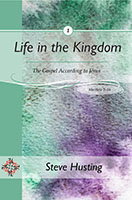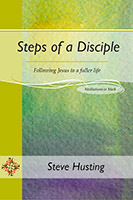We don’t have very far to look to find out why Jesus and the Pharisees clashed; He pointed out their flaws repeatedly. Let’s look at a few, for the reasons He had against the Pharisees are the same general reasons He has against all religions.
In Matthew 12:1-8 we find Jesus and the disciples hungry, so they ate food growing naturally nearby. The Pharisees objected, for they were breaking a Sabbath law. Jesus invoked the rule of mercy first, not sacrifice. The law gives way in the case of human and animal need; if they are hungry, they should be allowed to eat. If the animal fell into a pit, or a human needed rescue, their safety and health is a priority.
In Matthew 15:1-20, the Pharisees found fault when the disciples did not wash their hands in a ceremonial way before eating. The Pharisees had emphasized minor laws to such an extent they contradicted the major principles that govern life. A more serious error is thinking that obeying a law somehow makes a person righteous, when it does not change the evil within. The corrupt heart can’t be changed into one that loves God by merely following rules.
In Matthew 23:5-7, Jesus showed us the underlying reason why they performed their duties: they want to be admired by others. Obedience to God is not their primary focus.
Jesus spoke of the hypocrisy of the Pharisees in Matthew 23:13-14. There, they charged the poor widows exorbitant sums to pray long prayers over their misfortunes. It is better to lighten their load in compassion, not add to their misery! Another example of hypocrisy is teaching people about the kingdom of God, but making rules in such as way that neither they nor the people could enter it.
According to Matthew 23:25-28, the Pharisees were wicked to the core, but they only paid attention to the external; they cultivated a pretense of righteousness through the observance of their laws. We in the church do this when we say, “I’m a good person and go to church, so I’m good!” They had missed the point of The Ten Commandments, which was to show them where they had fallen short and bring them to repentance and personal deliverance by God.
Jesus had much to say against the wickedness of the religious structure. He said that new wineskins were needed for the new wine that He came to give; if put into old wineskins, the new wine would burst the skins and ruin it (Matthew 9:16-17). Jesus came to make of us a new creation that enjoys and obeys God, that receives the righteousness of God by faith, and makes the internal sin nature powerless to overrule this life. The addition of external laws and rules would only ruin it, but that’s the only life the Pharisees knew about.
What do you think?
1. Have you suffered condemnation from others when you had to withdraw from some religious activity for good reasons? Do you judge others who don’t uphold the religious standard as well as you do? Is a Pharisee different?
2. Do you observe religious activities in order to be accepted by others rather than being moved by obedience and love of God? Which would a Pharisee do?
3. Do you believe that you are more righteous, or a better person, because of religious principles, rules and laws you are following? Is a Pharisee different?






